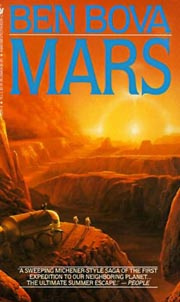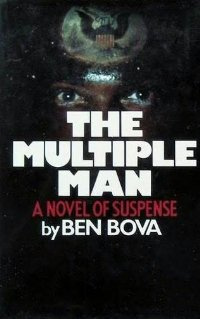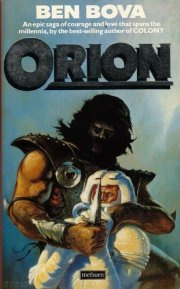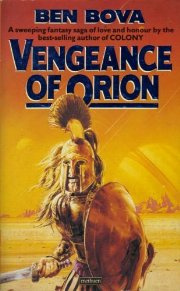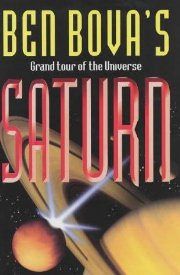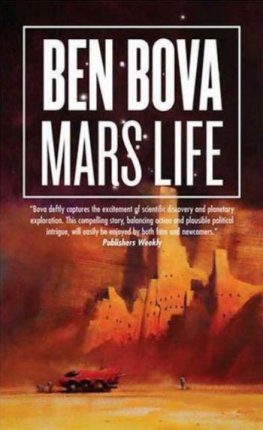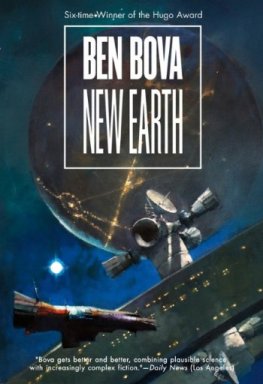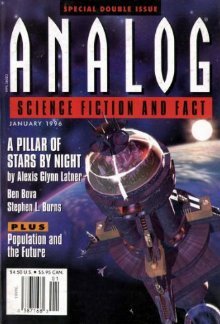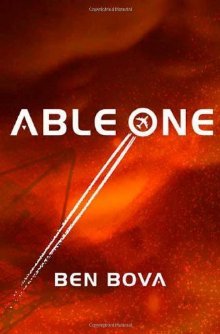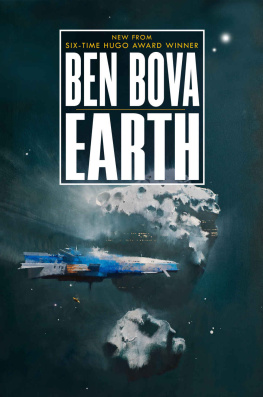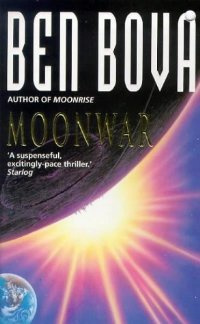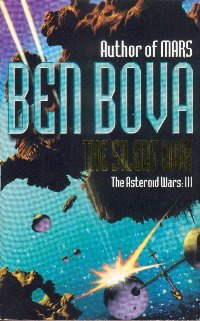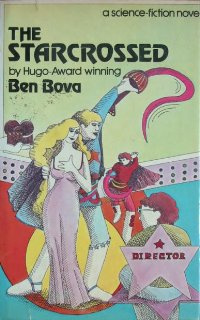Annotation
Jamie Waterman, a Native American geologist, is chosen at the last minute for the first manned exploration of the planet Mars. On touchdown, he is so overwhelmed with the emotion of the moment that he utters a Navajo phrase instead of the political statement he is supposed to read. This sets off a chain reaction among the leaders and politicians on Earth. Thus starts Bovas sprawling space opera. The expedition, seen from Jamies point of view, is really the protagonist here. The story is filled with lots of characters of different nationalities and theres plenty of political intrigue. Of course, there are obstacles to overcome: a meteor almost destroys the lab, the doctor neglects his duty and nearly kills them all, crew members come down with mysterious Martian flu, and through it all is the never-ending search for evidence of life on this planet. Bova has done extensive research and his descriptions of Mars and the conditions under which the study is conducted are very plausible. All in all, a satisfying story.
The novel is a part of currently 17-volume series Grand Tour that presents the theme of exploration and colonization of the Solar System by humans. Written in 1992 Mars, according to the internal in-universe chronology, stands 4th in the series and is immediately continued by Return to Mars published in 1999 which stands 7th. Events depicted in Moonrise (1996) and Moonwar (1998) take place between those of Mars and Return to Mars and are loosely related to them.
Ben Bova
Mars
Listen to the wisdom of the Old Ones:
The red world and the blue are brothers. They were born together in the seething maelstrom of dust and gas spinning out from the heart of the vast cloud that was to become Father Sun.
For uncountable time each world was engulfed in endless violence. Monsters roared down out of the sky, pounding the worlds mercilessly in a holocaust of terrible explosions. Under such awesome bombardment there could be no solid ground; the rocks themselves were liquid bubbling magma as the fiery rain from the sky went on and on, blotting out the radiance of the newly bright Father Sun with steaming clouds that covered each world from pole to pole.
Slowly, with the godlike patience of the stars themselves, slowly their surfaces cooled. Solid land took form, bare rock, hard and harsh and lifeless. Worse than the desert where The People live; much worse. There was no tree, no blade of grass, not even a drop of water.
Deep below their crusts both worlds were still liquid-hot with the energy of their violent creation. Water trapped beneath the ground boiled up, sweated from the depths like droplets beading a gourd in the heat of summer. The water evaporated into the thin film of atmosphere swaddling each newborn world. Cooling rain began to spatter onto the naked rocks, running into rivulets, streams, raging torrents that gouged the rocks out of their paths and tore huge gashes in the land.
On the bigger of the two worlds mighty oceans grew, filling deep rocky basins with water. The smaller world formed broad shallow lakes, but gradually they faded away into the thin, cold atmosphere or sank out of sight below the surface of the land.
Because of its glistening wide oceans the larger of the two worlds took on a deep blue tint. The smaller world slowly turned into a dusty, windblown desert as its waters sank into its ground. It turned rust-red.
Life arose on the blue world, first in the seas and later on dry land. Gigantic beasts roamed forests and marshes, only to disappear forever. At last The People came to the blue worldFirst Man and First Woman emerged, standing tall and proud in the bright sunlight. Their children multiplied. Some of them wondered about the world in which they lived and about the stars that dotted the night.
They turned their intelligent eyes to the red gleam in the sky that marked their brother world and wondered what it was. They watched it carefully, and the other stars too, and tried to understand the workings of the heavens.
To The People, the stars spoke of the endless cycles of the seasons, the time to plant, the time of the rains. The red world held no special fascination for them. They called it merely Big Star.
But to the Anglos, steeped in conquest and killing, whenever their pale eyes turned to the red gleam in the sky that marked their brother world they trembled with thoughts of blood and death. They named the red world after their god of war.
Mars.
SOL 1: MORNING
Touchdown.
It was said in Russian first and then immediately repeated in English.
Jamie Waterman never felt the actual moment when they touched the surface II Mars. The descent vehicle was lowering so gently that when it finally set down on the ground Jamie and the others realized it only because the vibration of the rocket thrusters ceased. Beyond everything else, Vosnesensky was a superb pilot.
All sense of motion stopped. There was no sound. Through the thick insulation of his pressure suit helmet Jamie could hear nothing except his own excited breathing.
Then Joanna Brumados voice came through his earphones, hushed, awed: Were here.
Eleven months ago they had been on Earth. Half an hour ago they had been in orbit around the planet Mars. Then came the terrifying ride down, shaking and bumping and burning their way through the thin atmosphere, an artificial meteor blazing across the empty Martian sky. A journey of more than a hundred million kilometers, a quest that had already taken four years of their lives, had at last reached its destination.
Now they sat in numb silence on the surface of a new world, four scientists encased in bulky, brightly colored pressure suits that made them look as if they had been swallowed alive by oversized robots.
Abruptly, without a word of command from the cockpit above them, the four scientists began to unstrap their safety harnesses and got up stiffly, awkwardly from their chairs. Jamie slid his helmet visor up as he squeezed between Ilona Malater and Tony Reed to get to the small round observation port, the only window in their cramped compartment.
He reached the window and looked out. The other three pressed around him, their hard-shell pressure suits butting and sliding against one another like a quartet of awkward tortoises trying to dip their beaks into the same tiny life-giving puddle.
A red dusty desert stretched out as far as the eye could see, rust-colored boulders scattered across the barren gently rolling land like toys left behind by a careless child. The uneven horizon seemed closer than it should be. The sky was a delicate salmon pink. Small wind-shaped dunes heaped in precise rows, and the reddish sand piled against some of the bigger rocks.
Jamie catalogued the scene professionally: ejecta from impacts, maybe volcanic eruptions but more likely meteor hits. No bedrock visible. The dunes look stable, probably been there since the last dust storm, maybe longer.
Mars, breathed Joanna Brumado, her helmet practically touching his as they peered through the window.
Mars, Jamie agreed.
It looks so desolate, said Ilona Malater, sounding disappointed, as if she had expected a welcoming committee or at least a blade of grass.
Exactly like the photos, said Antony Reed.
To Jamie, the red desert world beyond the window looked just as he had expected it to look. Like home.
The first member of the team to leave the landing ship was the sturdy construction robot. Crowding against the small observation window with the three other scientists, Jamie Waterman watched the bulbous, blue-gray metal vehicle roll across the rusty red sand on its six springy wheels, stopping abruptly about fifty meters from where their lander stood.

